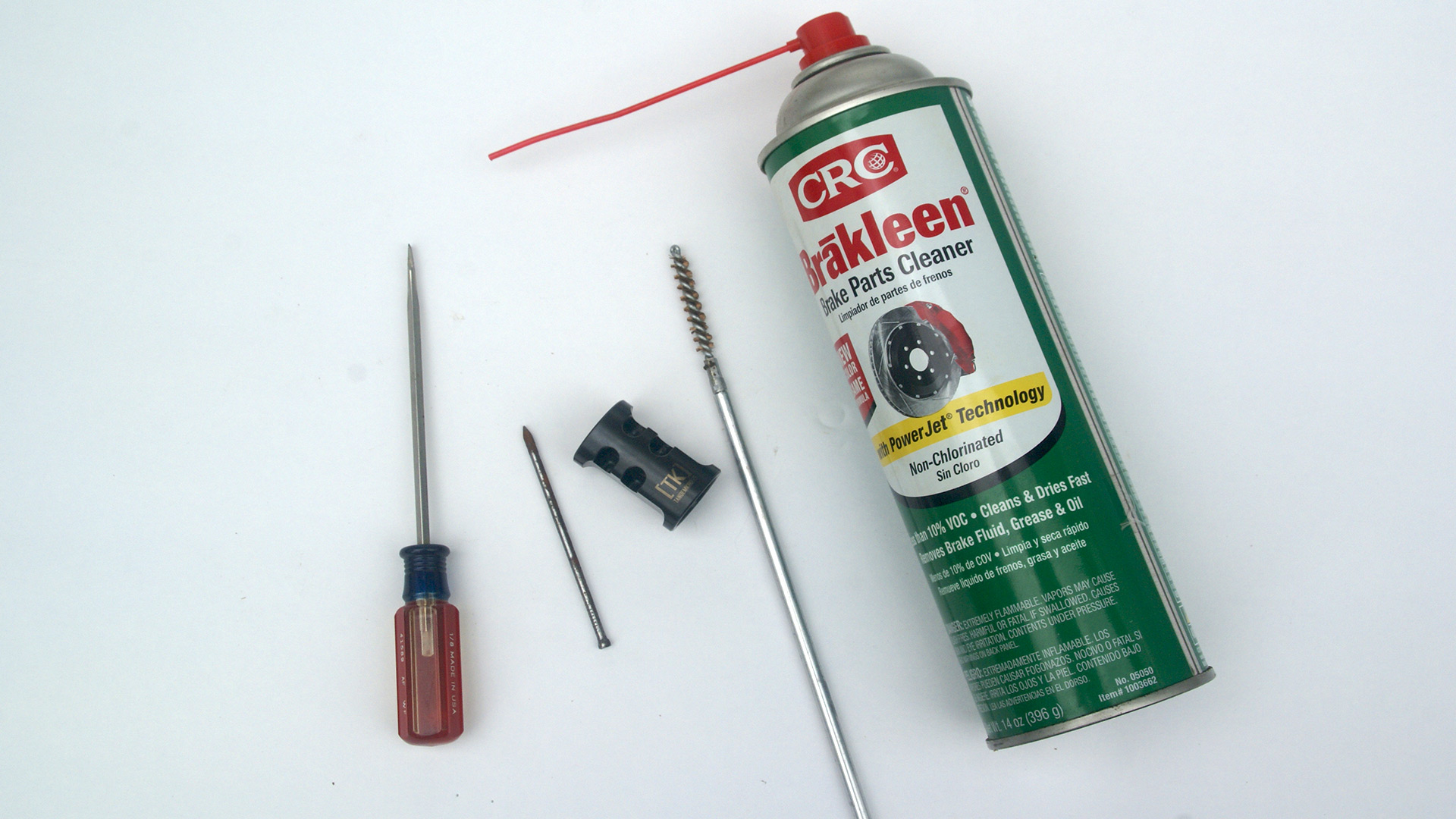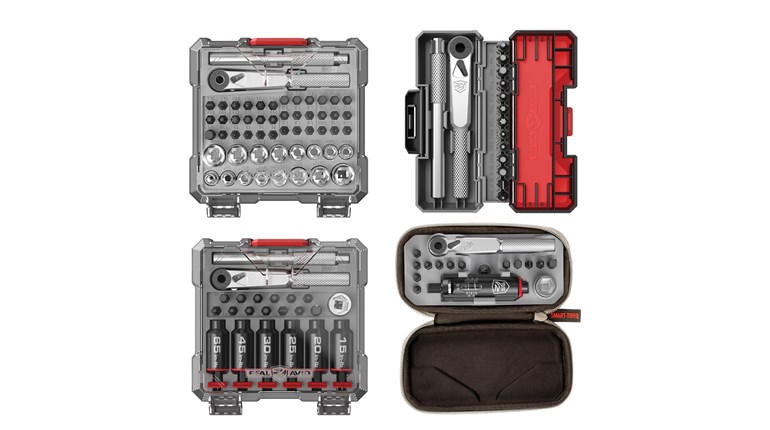
Muzzle brakes and compensators are popular in the action shooting sports, whether they’re attached to a centerfire handgun, PCC, or rimfire rifles and handguns. They can provide competitive advantages. But they also have a serious disadvantage. Comps and brakes collect crud. That includes carbon, copper or lead fouling, which can adversely affect performance and even create a safety hazard.
Copper, carbon and lead fouling will coat the inside of the comp—especially at the exit point. Lead is the worst. It will create a solid mass inside the comp. If that mass breaks loose during firing, gun damage can result. All the hard fouling must be periodically removed. But attempting to manually scrape out the hardened deposits is a tedious and not overly effective task. Chemicals make it easier.
If an ultrasonic cleaner is available, and the comp can detach from the gun, it takes only six to eight hours in the cleaner to get the crud into a manageable state.

Lacking an ultrasonic cleaner—or a detachable comp—a soak in penetrating oil will be effective, although it takes longer. The penetrating oil will seep down between the fouling and metal and help raise it clear of the surface. It may not magically make it fall away in clumps, although some clumps will break free. There are a number of penetrating-type oils on the market. I have used Kano Labs Kroil, Liquid Wrench and CorrosionX with good results.
With detachable comps, an empty pill bottle filled with enough penetrating oil to cover the comp works. A loop of string through the comp makes it easy to get in and out. For non-detachable muzzle brakes, use a larger container with just enough penetrating oil to cover the brake, and no further. Stick the container in a corner and brace the barrel assembly in it. Soak overnight.

There’s no need to throw out the penetrating oil after each use. If “clumps” are in it, simply strain it through a cloth. I pour the oil back into the pill bottle labeled “Comp Clean” and stick it on the cleaning bench. It’s just as good for additional cleanings and saves money.
With either cleaning method, my experience has been that while some fouling will break free, most of the fouling will turn into soft mush that can easily be scraped out. The ports can be cleaned out with a jeweler’s screwdriver, or other small item that can get in and knock out whatever mush remains. A small flat-bladed screwdriver, bore brush or even a 10-penny nail will dislodge the crud inside the comp body. A quick blast with carburetor or brake spray cleaner will finish the job.
The right chemicals can make life easier.
Read more: What’s The Best Way To Clean Brass?



































